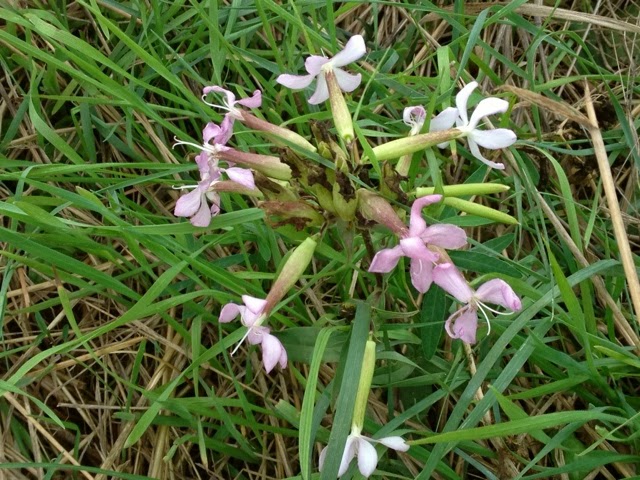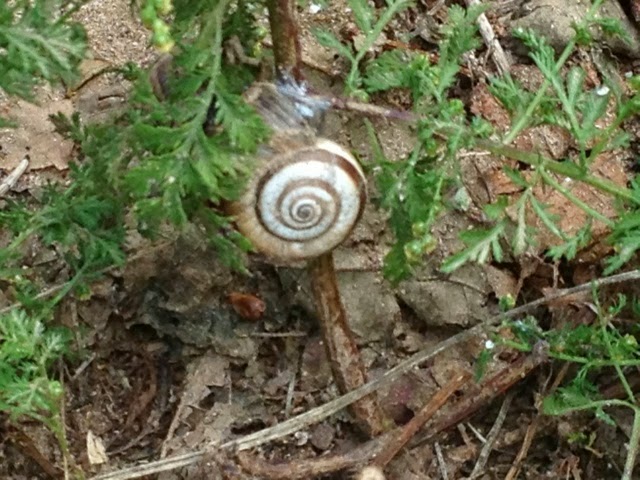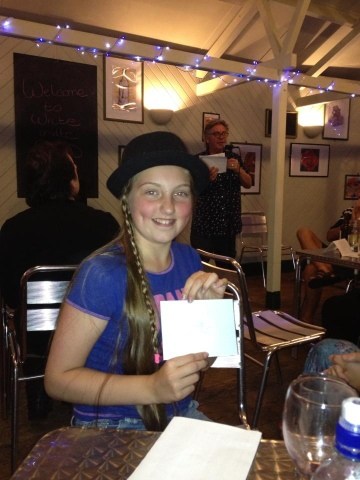Monday, September 30, 2013
Margaret Jennings Writing Retreat - continued
Sunday, September 29, 2013
First impressions of my French Writers Retreat
Helen Larham Guest Blog
I am a poet and busy Mum living in Hampshire And I have an ongoing ambition to have a collection of my poems published. I have had Poems published in: South 39and 42, Reflexions, Rain Dog,
Salopeot, Sarasvarti, Inclement, and Decanto Poetry Magazines. I have twice been placed highly commended in the Winchester Writer's conference poetry competition. I have had a poem included an Art exhibition. In the form of a written response, to Nick Shlee's painting, Buscot weir. I read my work regularly at the, Tongues and Grooves, poetry events in Portsmouth, and the Poetry Café in
Winchester. And I am a member of The Writers at Lovedean, writers group.
Yesterday I was chuffed to be offered 'Centre stage' poet by Decanto poetry magazine. I have been a contributor and subscriber to this magazine for a number approximately 3-4 years. Being a Centre Stage poet, means that I will be the highlighted poet in Decanto for that issue, not sure if it is this coming November or next. The editor requested I send a head and shoulders photo, some extra poems; they will publish 3-4 instead of the 2 already excepted.
I also had to fill in a questionnaire of 12 questions. This took me a couple of hours as the questions were quite extensive. Questions ranged from how long I had been writing, about 23 years, to who and
what things inspire me to write. This made me realize that my husbands paintings have provided a lot of inspiration over the years. The Writers at Lovedean, especially Charlotte Comey's workshops have given me a lot of inspiration and helped to improve my writing a great deal. I was asked 'What did I think of 'Traditional and Modern poetry?' I tend to write free verse, I find writing to a rhyming scheme a bit constricting. However, I like some traditional poets, such as Betjeman. I. enjoy reading modern poets. I like poetry that captures emotions and ideas in a way that is not constrained into any rigid
form. For me, it is the emotion, or idea that poem is trying to communicate that is important, not the form it takes.
The question I found the hardest was: 'Do you think poetry still has a place in our culture today'
I don't believe I would be a poet if I thought poetry was irreverent in our culture today. I believe poetry provides an important outlet to communicate and entertain, a vehicle for me to find my voice. Poetry
has provided me with the opportunity to be part of a wealth of creativity that exists, has always existed in this country. Although I am unlikely to get rich writing poetry, I think more people than ever
before are reading, and writing poetry.
From my experience I would say, If you like writing poetry, don't give up. Keep persisting, sending your work off to publishers. I have been writing for many years, and contributing to poetry magazines for
about 18 years. But, I don't think I would have kept going as long as I have if I didn't love writing poems. For me, nothing else makes it worth while.
Thursday, September 26, 2013
Tower Workshops Creative Writing in Portsmouth
Works by this author include:
'Shadows of the Temple' series:
Dawn of Shadows (2003)
Covenants of Shadows (2010)
Fall of Shadows (1999)
Shadow of Winter (2011)
Monday, September 23, 2013
The Day of the Dead
Thursday, September 19, 2013
How to write an writers bio
Wednesday, September 18, 2013
Writers webpage - my next step in 'The Plan'
Tuesday, September 17, 2013
Fears icy fingers
Monday, September 16, 2013
Writing Group Etiquette - There's nought(nowt) so queer as folk
"There's nought(nowt) so queer as folk" which means " There is nothing as strange/weird as people"
(This saying has nothing to do with a persons sexuality)
Friday, September 13, 2013
Jane Bwye - Guest Blog


Jane Bwye has been a businesswoman and intermittent freelance journalist all her life. She lived in Kenya for over half a century, where she went to school, and brought up her large family.
A world traveller, she buys a bird book in every country she visits. Now "retired" to the UK, she mentors small business start-ups, judges dressage, and advocates for the elderly, while indulging in her love for choral singing, tennis, bridge, and walking.
1. Can you share the premise of your latest project?
I am trying to write a novella called I Don’t Want to be Here, based on something that happened to me, although it is not my true story, as I feel freer when expressing myself in fictional form. It’s a story that must be told, based on what can happen to a couple when one of them falls very ill, dramatically changing their lives.
2 In particular, what led you to write?
It has always been easier for me to put my thoughts down in writing, than to speak them. My first book, Breath of Africa was written as a catharsis, when we moved from Kenya to retire in the UK. I was able to re-live my experiences in the country I still call my home, and I re-discovered a joy in making up stories.
3 Is there a key person or group that has inspired you in the process of writing?
The Authonomy peer review website, set up by Harper Collins played a major part in the development of Breath of Africa. I made many friends on this site, and received valuable advice and support in the book’s journey to Gold Medal status.
4 How do you envision your work will impact your readers?
Breath of Africa means different things to different people. It can be read as a love story, a psychological thriller, or as an exploration into the interactions of people of different races. Superstition and Christian faith clash, and the stunning beauty of the country is a major character in itself. It has also proved to enlighten many on the recent history of Kenya since Independence.
As far as I Don’t want to be Here is concerned, I guess readers will identify with the main characters, if they have had a similar experience. They willrealise that they’re not the only ones going through a crisis, and perhaps learn something from it.
5. As you embarked on writing your book, what was the overall message you wanted to convey to your audience?
That outsiders may not to be too quick to take sides, condemn or judge, without knowing the full story.
6 What process did you go through to build the narrative of your book?
A very long painful process! Both books started with short stories. With both, I knew what the ending was going to be. I just had to fill in the gap. When I went to a writers’ conference, I realised I had to learn the difference between a story and a plot. I still have to keep reminding myself of it. For me, the story was fairly straightforward – it wrote itself, once I got down to it.
It was the plot which took some manipulating - the exercise of bringing each chapter to a climax, and yet providing a tantalising hook to draw the reader onto the next chapter. It is a skill which I found hard to develop, and I would change the order of some chapters more than once.
I also found myself writing chapters out of order, as the whim took me, thenslotting them into the storyline by manipulating the beginnings and the endings. It didn’t always work.
7. In every author’s experience, there is often a pivotal event that results in the creative process. Can you describe the pivotal event that led you to write your book ?
The pivotal event which led me to write I Don’t want to be Here was when my husband contracted cancer over twenty years ago, and we have been living with the consequences ever since.
8. Are there any tips you can share on what parents can do to foster the love of reading and books?
Take away the television set and the mobile phone!! It was easy for me to become a bookworm at an early age, as I had neither.
Seriously, though, I don’t think parents, or anyone, should try to foster love of anything in children. The children will develop their own likes and dislikes. Example is the best way to arouse an interest. If the parents curl up every evening with a book, read a bedtime story, and discuss books with each other, a receptive child will take note.
One thing I did do with my children, however, was to insist on an hour’s quiet time after lunch every day. They were encouraged to sleep, but there was also a bookcase full of fairy tales in their bedroom. The volumes were calledThe Golden Pathway, and The Children’s Encyclopedia. That said, only one of my six children, now grown up, is a regular reader.
9. What aspect of life do you want your readers to know about?
I would not presume to try and educate my readers. They will draw their own conclusions. I am merely setting out my thoughts and experiences in asinteresting and entertaining a way as I can.
10. Describe the role books played in your own life.
The only time I did not have a recreational book to hand was when I did a distance education degree, and even then, I was reading study books!
Books and the worlds they have opened up to my imagination have had an enormous impact on my life, and how I regard it. I cannot imagine anyone growing their lives without this amazing way of finding knowledge, understanding and a semblance of wisdom.
In this day and age, one cannot afford the time to reinvent the wheel. To my mind, the written word is the most prolific way to learn in depth from the experiences of others.
Website: http://janebwye.com/
Facebook Author Page: http://www.facebook.com/JLBwye
Twitter: http://twitter.com/jbwye
BREATH OF AFRICA: amazon: http://www.amazon.co.uk/Breath-Africa-J-L-Bwye/dp/1908910798/ref=sr_1_1?ie=UTF8&qid=1371194186&sr=8-1&keywords=breath+of+africa


The e-book can also be bought from the publishers: Crooked Cat:
http://www.crookedcatbooks.com/index.php?route=product/product&path=74&product_id=89
List of publications:
Tuesday, September 10, 2013
Free Entry Writing Competitions
Monday, September 9, 2013
Waking up with a start!
Trying a different approach
Sunday, September 8, 2013
What is a writer's platform?
Friday, September 6, 2013
Katie Gill - Guest Blog
I am 19 and have been writing poetry since I was about 14. It is largely autobiographical as I am inspired by things I have experienced personally and by what people close to me have been through. I am also inspired by Kate Tempest and Sylvia Plath. I will be going to Queen Mary University of London soon to study English. I hope to become an English lecturer in the future whilst pursuing my writing.
In particular, what led you to write?
I had always written short stories and poems when I was very young and I have always loved reading; my Dad nurtured my love of literature by giving me lots of different books and encouraging me to read widely. Experiencing different styles of writing spurred me on to take my writing seriously and I started writing poetry when I was about 14. I remember that my English teacher read the poem 'Edge' by Sylvia Plath on National Poetry Day when I was about 15 and I was so blown away by the powerful imagery and language choices and so moved by Plath's life experiences that I was inspired to write about my own experiences and feelings.
How do you envision your work will impact your readers?
People have told me that my poetry is quite dark so I hope it doesn't leave people feeling depressed! I hope that they can read or listen to my poems and relate to certain feelings that I discuss. I hope that they find the strong emotions moving and engaging.
Are there any tips you can share on what parents can do to foster the love of reading and books?
When I was little my parents always made sure that they read to my sister and I every day and my Mum took us to the library regularly to choose books. When we were learning to read Mum would sit down with us every night and help us. I think that this instilled a love of literature in me from a very young age and I believe that encouraging children to read when they are still young can help them to grow up with a positive attitude towards books. Finding some time each night, no matter how little, to sit down with a child and help them as they are learning to read a book can give them the confidence to continue reading into adulthood and to enjoy doing so. I also think that taking a child to a library so that they can choose books themselves will inspire them to read more as they will be more likely to read a book that they have chosen and that they are interested in.
What aspect of life do you want your readers to know about?
A lot of my poetry is quite personal but it covers topics that people could relate to, particularly teenage girls. Its no coincidence that I started writing poetry seriously when I became a teenager and experienced the changes that ensue and the pressures that can arise. Its a bit of a cliché but young people can feel pressures, be that due to school, the media or peers and hopefully by talking about my own experiences people may relate to certain poems and feel less alone or become more aware of topics that have a lot of stigma attached to them.
Twitter: @katiegill_





























